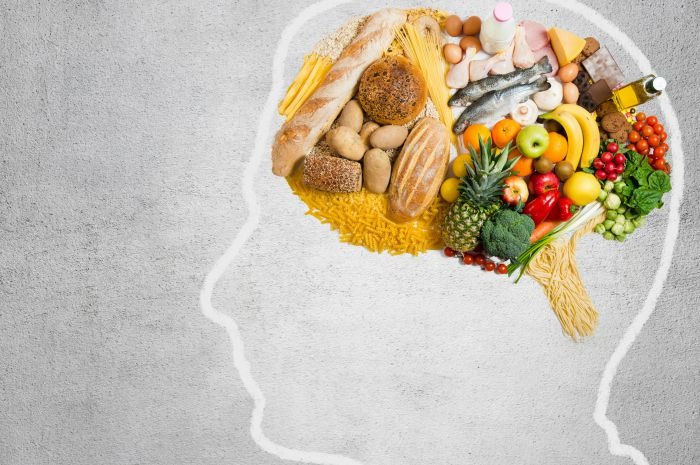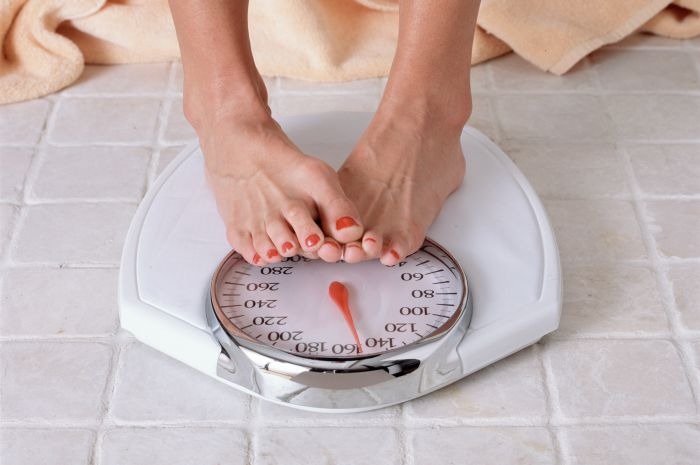What Really Happens To Your Body When You Go Gluten-Free
If you want to spare yourself intestinal problems and mental distress, eliminating gluten may be something to consider. However, taking this protein out of your diet does not guarantee you will lose weight or that your problems will be solved. In fact, if you are not experiencing health problems that are similar to the symptoms of gluten intolerance, there is no reason to cut gluten from your diet — in fact, you could end up experiencing other problems by eliminating nutritious grains and increasing your intake of non-`nutritious foods. If you are considering adopting a gluten-free diet, we compiled a list of things you can expect along the way.
A Clearer Brain
"Studies have supported a gut-brain connection, which means that much of what goes on in our minds is actually dictated by what's going on in our stomachs — good or bad," Axe says. "When some people go gluten-free, it reduces their intestinal inflammation, which, in turn, reduces the likelihood of neural inflammation... This inflammation can cause brain fog or chronic fatigue syndrome, or it could lead to Alzheimer's at more severe levels."
Cravings
Whenever you cut something from your diet, even if it is something your body doesn't need, it is normal to experience intense cravings. Due to the increased popularity of the gluten-free diet, many of your favorite foods now come in gluten-free versions. But it's important to be aware that just because a product is gluten-free does not mean it's healthier. "We just caution that they are not assuming that just because a product is gluten-free, that it is healthier — or that it will help with weight loss," Gomer says. "Specifically gluten-free bread, crackers, pretzels, and cookies are just junk food made without wheat."
Headache
If gluten is part of your regular diet, cutting it out completely could instigate symptoms of withdrawal, such as a headache. These symptoms should pass, but they could also be due to the fact that you are not eating enough during the course of the day. But just because you eliminate gluten does not necessarily mean you will be eating less.
Improved Digestion
"Giving up gluten can decrease gut inflammation, a condition which, if not addressed, can lead to leaky gut, which over time causes food sensitivities, autoimmune diseases, and digestive issues like inflammatory bowel disease," Axe says.
Increased Energy
If you eliminate gluten, you have to make up for it by consuming additional foods to keep up energy levels. "People may also experience better energy levels, as digestion is a bodily function that requires an incredible amount of energy — especially when that function is impaired by system-clogging gluten," Axe says. "Also, when people get gluten out of their diet, they typically replace those foods with fruits, veggies, and other more nutrient-dense foods, like quinoa-based products."
Nutritional Deficiency
"A gluten-free diet can also set you up for nutritional deficiencies. Many whole grains are rich in vitamins and minerals — like vitamins B and D, iron, and fiber — and cutting them out entirely can leave your body lacking," Refaat Hegazi says. "Whether your diet was prescribed by a doctor or you are choosing to cut back for personal reasons, a gluten-free diet is doable if followed carefully."
Reduced Anxiety
"A food sensitivity to gluten can have effects beyond physiological symptoms, including imbalances in key chemicals in the brain, which can cause anxiety, phobias, depression, irritability, increased heart rate, and mood swings," says Trudy Scott, nutritionist and author of The Antianxiety Food Solution. "When food sensitivities have these effects, they are sometimes termed 'brain allergies.' Gluten sensitivity appears to have these sorts of effects on certain susceptible individuals."
Reduced Bloating
"If you think you may have gluten sensitivity, going gluten-free can also improve digestion, reducing bloating and diarrhea, among other symptoms," Hegazi says. "Improved digestion associated with a gluten-free lifestyle may also relieve symptoms associated with other intestinal disorders like lactose intolerance."
Reduced Depression
A paper published by Alimentary Pharmacology & Therapeutics found that consuming gluten was associated with symptoms of depression. Gluten affects cortisol levels and the amount of serotonin in the brain. A study conducted with rats found that their brain serotonin levels, which are linked to happiness, were lower after they consumed wheat.
Weight Gain
Sometimes eliminating gluten means you opt for gluten-free alternatives to match the original. Gluten-free products can be high in fat, calories, and carbohydrates, and have no nutritional value. "People who replace wheat products with gluten-free carbs and sugar are not actually improving their diet and will be less likely to experience the benefits of eliminating gluten," Axe says.
Weight Loss
Eliminating gluten can also have the opposite effect. "People can naturally lose weight when they give up gluten — not just because they may be consuming fewer calories, but also because their bodies will begin burning fat for energy instead of the carbs they were frequently consuming," Axe says. Choosing other whole grains that are naturally gluten-free, such as brown rice and quinoa, can still provide complex carbohydrates.










